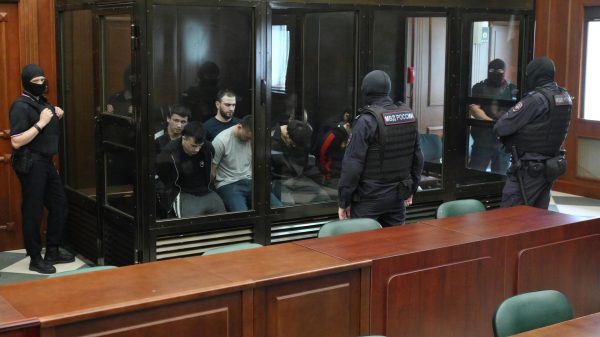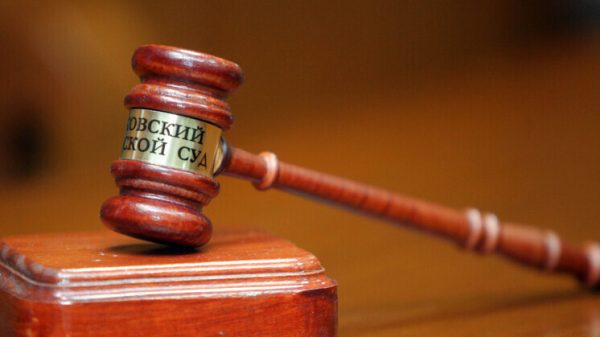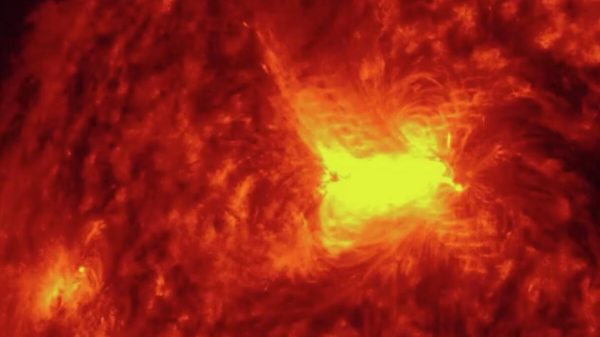This article is made possible through Votebeat, a nonpartisan reporting project covering local election integrity and voting access.
Americans shattered records for voting by mail in many states in the 2020 presidential election, a phenomenon that tested existing election laws, new pandemic-related regulations, postal service capacity, voter education efforts and voters’ own resolve.
Some states had more wiggle room in accepting the mail-in votes than others, allowing ballots that were postmarked by election day to come in later, anywhere from the following day to nearly three weeks after. These grace periods became a highly contentious and politicized aspect of the election. The Trump campaign and its allies challenged them all the way up to the US supreme court as part of an overall campaign questioning the legitimacy of mail-in voting.
As Biden won the presidency, Republicans cemented their grip on power for the next decade
Read more
Grace periods for mail-in ballots also became more significant as it became clear that the vote’s results would not be even close to final on election day and that the country would indeed experience the “big blue shift” that experts predicted.
But what are the implications of letting ballots arrive late? A state-by-state look at the turnout data shows that the numbers weren’t large but were substantial enough to potentially sway a local race or a tighter election. It also shows a messy national picture, with chaotic regulations and poor record-keeping.
Late-arriving ballots, by the numbers
Twenty-two states had grace periods for late-arriving ballots this election – some already had the provision written into their laws, some implemented special extensions just for the pandemic. Five states allowed ballots to arrive three days after election day (until 6 November) and five others allowed a full week (until 10 November). There is no uniform system in the United States for tracking data on ballots, and some of the data Votebeat collected are merely estimates.
In Pennsylvania, after a partisan legal battle, the US supreme court (Scotus) allowed election officials to keep accepting absentee ballots over a three-day extension. About 10,000 votes arrived in that period, according to the secretary of state’s office. Those ballots are still subject to a lawsuit pending at Sotus and are sequestered from official results. They made up about 0.4% of the total mail-in vote. In Massachusetts, which also had a three-day rule, 3,403 votes came in, or 0.2% of the mail-in vote, the secretary of state’s office told Votebeat.
North Carolina is another state whose deadline was challenged in the supreme court. The period there was longer – nine days – and about 15,000 votes arrived from 4-12 November, making up about 1.4% of the total mail-in vote. In Washington, where voters only cast ballots by mail, the grace period was 20 days. Election offices got a whopping 100,000 votes, or about 2.4% of the total, in that period, the secretary of state’s office told Votebeat. (It’s important to note that in all of these states, you were also able to deliver your mail ballot to the election office or through a drop box, so the total mail-in vote includes those ballots as well.)
The US supreme court decided in late October that Wisconsin’s grace period, in place for the April primary, would not apply in the November general election. During the state’s primary, 79,000 ballots arrived within those extra six days, making up about 6% of the total mail-in vote. Wisconsin election officials haven’t determined how many ballots in November arrived too late to be counted.
Election officials in Kentucky and Illinois were only able to guess at how many ballots arrived within their grace periods, because of inconsistent methods for counting and recording them. Texas, North Dakota, Ohio and Nevada do not track at all on the state level how many ballots arrive within their grace periods.
Generally, the longer the grace period, the larger the share of late ballots within it, but there are other factors to consider. In states like Wisconsin and Pennsylvania, pending litigation made it more of a challenge to inform voters of all the necessary deadlines and left voters uncertain about voting timetables. Conversely, many states did not change their mail-in voting procedures, like deadlines for requesting or submitting absentee ballots, despite the anticipated increase of mail-in voting. In Pennsylvania the deadline for requesting was just a week ahead of the election.
Kim Alexander, head of the California Voter Foundation, which supported the introduction of California’s grace period in 2014, and has conducted research on the matter, says that under normal conditions, the grace period doesn’t have to be all that long. “In my review of late ballots, most of the ballots that come in post-election come in [during the] three days after an election.”
Votebeat found evidence of that pattern in 2020 by examining data from Minnesota, since the state provided day-by-day updates for outstanding absentee ballots, showing that the vast majority of late-arriving ballots arrived the day after the election.
How do grace periods help voters?
The 2020 election was an election like no other, with multiple factors complicating the vote-by-mail process: more mail-in votes in general, the politicization of the issue, changing laws, litigation, US Postal Service (USPS) delays.
The main justification for the grace periods, proponents say, is to account for the unreliable performance of the postal service, which had a lot of delivery delays prior to the election, including problems getting voters their absentee ballots on time.
“It places an unfair burden on voters to expect them to be able to predict how long it’s going to take for their ballot to get through the mail system and received by their county,” Alexander said.
An NPR analysis of this year’s primary elections found that more than 50,000 votes were rejected because they arrived too late. Often, it wasn’t the voters’ fault at all. And, as studies in several states have shown, first-time voters, like young, Black and Latino voters, are more likely to have their ballot rejected.
“One of the big takeaways from this election is we saw how giving voters the ability to securely vote remotely through the mail is a great benefit, in particular in a situation of a global pandemic, but it also brings the US Postal Service in as a major partner in the elections process,” Alexander said. “That means elections officials need to know a lot about how the US Postal Service operates.”
Voting by mail may seem more convenient, but it also requires the voter to act much earlier than they would if they went to the polls, said Barry Burden, political science professor at the University of Wisconsin–Madison. You have to make sure to request your ballot early, and in some states, make sure you have a valid ID to do so.
“One problem with having a hard and fast election day deadline is that it actually forces people who want to vote by mail to submit their ballot before the campaign is over, and so it deprives them of the right to watch the campaign to its conclusion,” said Burden. Those final days might be pivotal for the voter’s decision-making process – there’s new information coming in, newspaper endorsements, debates. In 2016, then FBI director James Comey sent a letter to Congress on 28 October about a new trove of Hillary Clinton’s emails, which some have said had cost her the election.
But, others say, there’s always a deadline, and there are good reasons for why it should just be election day, said Charles Stewart III, expert on election systems and professor of political science at the Massachusetts Institute of Technology. “One is the optics issue that arose in this election,” he said. Ballots that arrive after the election give fodder to those who want to undermine the legitimacy of the voting process. “And it discourages people from getting the ballot done,” he added.
The most important part of absentee or mail-in voting is education
Jared Dearing
“The most important part of absentee or mail-in voting is education, ensuring that voters can cast their ballots effectively, that they have the deadlines and timelines, regardless of whether the state has a grace period or not,” said Jared Dearing, executive director of Kentucky’s board of elections. “All [that] election administrators can do around voter education, the better the process.”
And Stewart says that the country did remarkably well on educating voters about when to turn their ballot in – the relatively small proportion of late ballots amid millions mailed in to election authorities, and the fact that many states did not change their absentee request deadlines, is “actually kind of amazing”.
What is clear, however, is that the more convenient you make voting, the more people will get their votes in on time, Stewart said. That means the solution could be much bigger than trying to optimize deadlines.
“If you have a lot of conveniently located drop boxes, and if you have a receive-by date, or requirement, you’ve done a lot to allow voters to get their ballots in on time. And I think from this election, we saw that almost all voters can get their ballots in on time.”























































Свежие комментарии